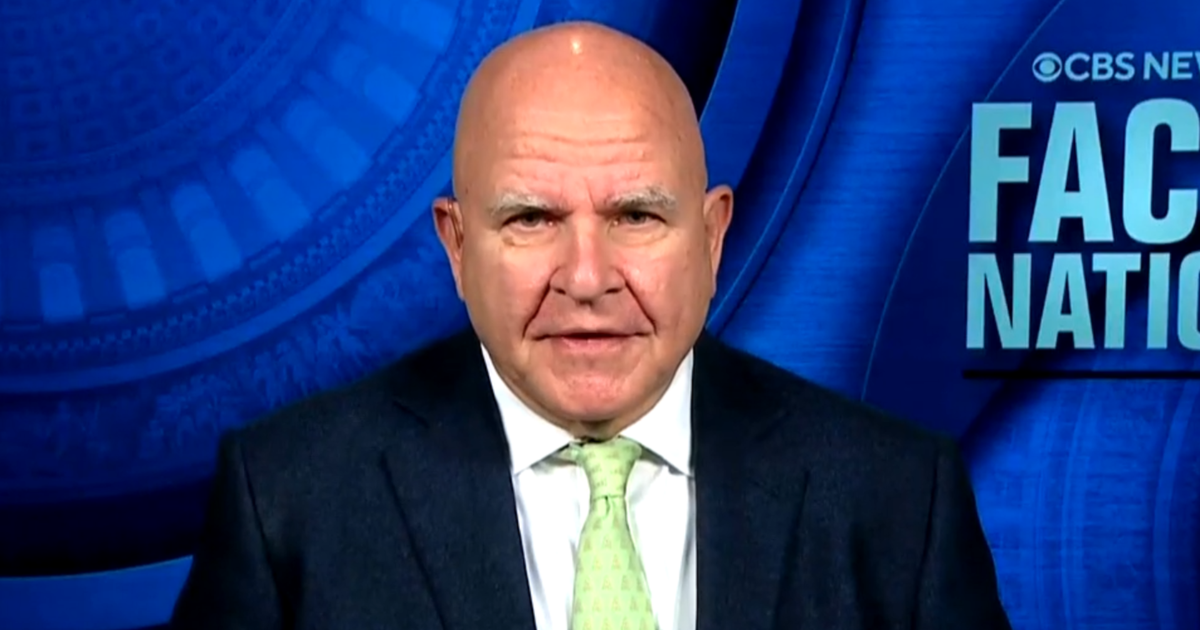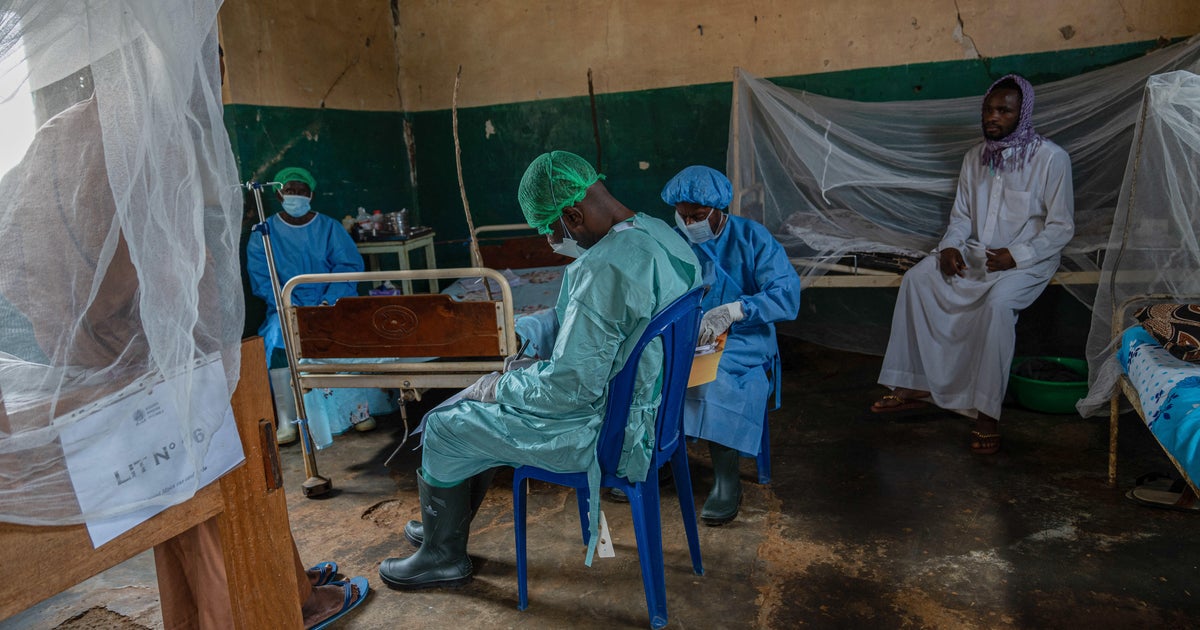CBS News
In Mozambique’s Gorongosa National Park, not just the animals are thriving | 60 Minutes

Wildlife is abundant in Gorongosa National Park. Situated in the center of Mozambique in southeastern Africa, Gorongosa is home to tens of thousands of animals, including lions, leopards, elephants, and zebras.
It is a remarkable sight, given the park’s history — and the transformation has not only been for animal residents.
Decades ago, Gorongosa was a world-famous park, renowned for its abundant wildlife. But from the 1960s until the 1990s, Mozambique was rocked by 28 years of war, first as the country gained its independence from Portugal, and then as a civil war broke out between the two main political movements. During the civil war, Gorongosa was often a battlefield; 95 percent of the wildlife was either poached by soldiers and local villagers desperate for food, or slaughtered for profit.
60 Minutes correspondent Scott Pelley first visited the national park in 2008 to follow American entrepreneur Greg Carr, who had spent the last four years devoting himself to returning Gorongosa to its former glory. At the time, Carr was beginning to reintroduce animals to the landscape. The effort was not without its challenges. Zebras, for example, had to be brought in from Zimbabwe, but that country’s political and economic troubles at the time made importing anything impossible.
Carr’s grand vision for the park went well beyond animals, however. It also extended to the people living around the park, who were surviving on not much more than a dollar a day.
“The idea is, take the beauty of the park and use that to do human development,” Carr told Pelley in 2008. “Attract the tourists who will spend the money to create the jobs and lift everybody out of poverty. For an entrepreneur, it’s kind of a compelling opportunity to, you know, one plus one equals ten.”
Pelley and 60 Minutes returned to Gorongosa in 2022 to see how Carr’s equation was working out. The transformation was immediately evident.
“We used to drive on the trails here in 2008, and we would drive for hours and not see an animal, not one,” Pelley told 60 Minutes Overtime. “Today you can’t drive 100 yards without running into all kinds of spectacular African fauna and flora.”
Carr’s bet on human capital has also made a leap forward. Gorongosa now employs 1,600 mostly Mozambican workers. Carr’s organization works in all 89 primary schools that surround the national park and trains hundreds of schoolteachers. Carr has also begun 92 after-school clubs that serve some 3,000 young girls.
Part of his investment into the people of Gorongosa includes sending young people to the United States to go to college, including one young woman named Gabriela Curtiz. Fluent in numerous languages, Curtiz grew up in the Gorongosa area and is now enrolled at Boise State University in Idaho, where she’s getting a degree in management. Her goal is to return and help manage Gorongosa.
Curtiz told Pelley that Carr’s changes to Gorongosa have helped its people by giving them opportunity, especially women.
“Here in Mount Gorongosa specifically, we have 800 people working on the coffee harvesting and planting native species. And half of them are women,” Curtiz said. “So that gives prosperity. That gives voice to the women to express their opinion.”
In the years to come, Carr has next set his sights on attempting to make the park self-sustaining. Ecotourism is the main initiative, and Carr has begun building high-end lodges to expand the park’s revenue.
Another income-generating idea is selling carbon credits, which act somewhat like a permit for a company’s carbon emission. When a company, usually from a developed country, purchases a carbon credit, the company is then enabled to generate one ton of carbon emissions. For Gorongosa, the way for companies to offset their carbon usage is to buy trees.
Mount Gorongosa, which looms over the rest of the park, had been heavily stripped of trees during years of civil war. Today Carr’s non-profit foundation is giving away coffee trees for local farmers to plant as part of Mount Gorongosa’s reforestation, and the foundation is negotiating the sale of carbon credits for this planting.
The revenue from carbon credits, Carr said, will further benefit a region already impacted by climate change.
“I think we all know that there’s too much carbon dioxide going up into the air, and it’s heating the planet. And it’s going to hammer Africa,” Carr said. “Africa cannot afford any more droughts or for that [matter], many more cyclones.”
All the money brought in from both tourism and carbon credits will be returned into the community, Carr said.
As he looks toward the future, Carr’s vision for Gorongosa remains the same as it did when he first arrived in 2004: helping the residents of Gorongosa — both four-legged and two-legged.
“I like elephants,” Carr told Pelley. “But I love people.'”
The video above was originally published on Dec. 4, 2022 and was produced by Brit McCandless Farmer, Will Croxton, and Henry Schuster. It was edited by Will Croxton.
CBS News
Former Israeli hostages released in truce 1 year ago call for action to release those still held

Former Israeli hostages who were freed from Hamas captivity during a week-long humanitarian pause in fighting exactly one year ago Sunday called for immediate action to secure a deal for the release of those still held.
The only truce in the ongoing Israel-Hamas war on Nov. 24, 2023 – fewer than two months after fighting began – led to the release of 80 Israelis held by militants in Gaza. They were freed in exchange for 240 Palestinians detained in Israeli jails.
Repeated efforts since then by mediators from Qatar, Egypt and the United States to secure another truce and hostage release have failed. Qatar early this month said it was suspending its mediation role until the warring sides show “seriousness.”
Mostafa Alkharouf/Anadolu via Getty Images
Gabriella Leimberg was kidnapped during the Oct. 7, 2023, Hamas attack and was released along with her daughter, Mia, and sister Clara.
“For 53 days, the one thing that kept me going is that we, the people of Israel, the Jewish people, sanctify life — we don’t leave anyone behind,” she said.
Leimberg added: “Everything has already been said and now action is required. We don’t have any more time.”
Around 100 hostages are still in Gaza, and at least a third are believed to be dead.
“I survived and I was fortunate to get my entire family back,” Leimberg said. “I want and demand this for all the families of the hostages.”
Hamas wants Israel to end the war and withdraw all troops from Gaza. Israel has offered only to pause its offensive.
The Palestinian death toll from the war surpassed 44,000 this week, according to Gaza’s Health Ministry, which does not distinguish between civilians and combatants in its count.
Maya Alleruzzo / AP
Danielle Aloni, who was kidnapped with her five-year-old daughter, Emelia, and freed after 49 days, spoke at the ceremony of the “increasing danger” those still being held face every day.
She said those still in captivity “suffer physical, sexual, and psychological abuse, their identity and dignity crushed anew each day”.
“It took the Israeli government about two months to secure a deal for me and 80 other Israeli hostages. Why is it taking over a year to reach another deal to free them from this hell?” asked Aloni, whose brother-in-law, David Cunio, and his brother, Ariel Cunio, are still being held.
She emphasized that, even though she and the other hostages gained their freedom a year ago, “we haven’t really left the tunnels,” — referring to Hamas’ underground tunnels where many of the hostages were held.
“The feeling of suffocation, the terrible humidity, the stench — these sensations still envelop us,” Aloni said.
“If people could truly understand what it means to be held in subhuman conditions in tunnels, surrounded by terrorists for 54 days — there’s no way they would allow hostages to remain there for 415 days!” said Raz Ben Ami, who was released in the deal a year ago.
Her husband, Ohad, is still among those being held.
Ben Ami called for a ceasefire to “bring back all the hostages as quickly as possible”.
CBS News
Couple charged for allegedly stealing $1 million from Lululemon in convoluted retail theft scheme

A couple from Connecticut faces charges for allegedly taking part in an intricate retail theft operation targeting the apparel company Lululemon that may have amounted to $1 million worth of stolen items, according to a criminal complaint.
The couple, Jadion Anthony Richards, 44, and Akwele Nickeisha Lawes-Richards, 45, were arrested Nov. 14 in Woodbury, Minnesota, a suburb of Minneapolis-St. Paul. Richards and Lawes-Richards have been charged with one count each of organized retail theft, which is a felony, the Ramsey County Attorney’s Office said. They are from Danbury, Connecticut.
The alleged operation impacted Lululemon stores in multiple states, including Minnesota.
“Because of the outstanding work of the Roseville Police investigators — including their new Retail Crime Unit — as well as other law enforcement agencies, these individuals accused of this massive retail theft operation have been caught,” a spokesperson for the attorney’s office said in a statement on Nov. 18. “We will do everything in our power to hold these defendants accountable and continue to work with our law enforcement partners and retail merchants to put a stop to retail theft in our community.”
Both Richards and Lawes-Richards have posted bond as of Sunday and agreed to the terms of a court-ordered conditional release, according to the county attorney. For Richards, the court had set bail at $100,000 with conditional release, including weekly check-ins, or $600,000 with unconditional release. For Lawes-Richards, bail was set at $30,000 with conditional release and weekly check-ins or $200,000 with unconditional release. They are scheduled to appear again in court Dec. 16.
Prosecutors had asked for $1 million bond to be placed on each half of the couple, the attorney’s office said.
Richards and Lawes-Richards are accused by authorities of orchestrating a convoluted retail theft scheme that dates back to at least September. Their joint arrests came one day after the couple allegedly set off store alarms while trying to leave a Lululemon in Roseville, Minnesota, and an organized retail crime investigator, identified in charging documents by the initials R.P., recognized them.
The couple were allowed to leave the Roseville store. But the investigator later told an officer who responded to the incident that Richards and Lawes-Richards were seasoned shoplifters, who apparently stole close to $5,000 worth of Lululemon items just that day and were potentially “responsible for hundreds of thousands of dollars in loss to the store across the country,” according to the complaint. That number was eventually estimated by an investigator for the brand to be even higher, with the criminal complaint placing it at as much as $1 million.
Richards and Lawes-Richards allegedly involved other individuals in their shoplifting pursuits, but none were identified by name in the complaint. Authorities said they were able to successfully pull off the thefts by distracting store employees and later committing fraudulent returns with the stolen items at different Lululemon stores.
“Between October 29, 2024 and October 30, 2024, RP documented eight theft incidents in Colorado involving Richards and Lawes-Richards and an unidentified woman,” authorities wrote in the complaint, describing an example of how the operation would allegedly unfold.
“The group worked together using specific organized retail crime tactics such as blocking and distraction of associates to commit large thefts,” the complaint said. “They selected coats and jackets and held them up as if they were looking at them in a manner that blocked the view of staff and other guests while they selected and concealed items. They removed security sensors using a tool of some sort at multiple stores.”
CBS News contacted Lululemon for comment but did not receive an immediate reply.
CBS News
Former Trump national security adviser says next couple months are “really critical” for Ukraine

Washington — Lt. Gen. H.R. McMaster, a former national security adviser to Donald Trump, said Sunday that the upcoming months will be “really critical” in determining the “next phase” of the war in Ukraine as the president-elect is expected to work to force a negotiated settlement when he enters office.
McMaster, a CBS News contributor, said on “Face the Nation with Margaret Brennan” that Russia and Ukraine are both incentivized to make “as many gains on the battlefield as they can before the new Trump administration comes in” as the two countries seek leverage in negotiations.
With an eye toward strengthening Ukraine’s standing before President-elect Donald Trump returns to office in the new year, the Biden administration agreed in recent days to provide anti-personnel land mines for use, while lifting restrictions on Ukraine’s use of U.S.-made longer range missiles to strike within Russian territory. The moves come as Ukraine marked more than 1,000 days since Russia’s invasion in February 2022.
Meanwhile, many of Trump’s key selection for top posts in his administration — Rep. Mike Waltz for national security adviser and Sens. Marco Rubio for secretary of state and JD Vance for Vice President — haven’t been supportive of providing continued assistance to Ukraine, or have advocated for a negotiated end to the war.
CBS News
McMaster said the dynamic is “a real problem” and delivers a “psychological blow to the Ukrainians.”
“Ukrainians are struggling to generate the manpower that they need and to sustain their defensive efforts, and it’s important that they get the weapons they need and the training that they need, but also they have to have the confidence that they can prevail,” he said. “And any sort of messages that we might reduce our aid are quite damaging to them from a moral perspective.”
McMaster said he’s hopeful that Trump’s picks, and the president-elect himself, will “begin to see the quite obvious connections between the war in Ukraine and this axis of aggressors that are doing everything they can to tear down the existing international order.” He cited the North Korean soldiers fighting on European soil in the first major war in Europe since World War II, the efforts China is taking to “sustain Russia’s war-making machine,” and the drones and missiles Iran has provided as part of the broader picture.
“So I think what’s happened is so many people have taken such a myopic view of Ukraine, and they’ve misunderstood Putin’s intentions and how consequential the war is to our interests across the world,” McMaster said.
On Trump’s selections for top national security and defense posts, McMaster stressed the importance of the Senate’s advice and consent role in making sure “the best people are in those positions.”
McMaster outlined that based on his experience, Trump listens to advice and learns from those around him. And he argued that the nominees for director of national intelligence and defense secretary should be asked key questions like how they will “reconcile peace through strength,” and what they think “motivates, drives and constrains” Russian President Vladimir Putin.
Trump has tapped former Rep. Tulsi Gabbard to be director of national intelligence, who has been criticized for her views on Russia and other U.S. adversaries. McMaster said Sunday that Gabbard has a “fundamental misunderstanding” about what motivates Putin.
More broadly, McMaster said he “can’t understand” the Republicans who “tend to parrot Vladimir Putin’s talking points,” saying “they’ve got to disabuse themselves of this strange affection for Vladimir Putin.”
Meanwhile, when asked about Trump’s recent selection of Sebastian Gorka as senior director for counterterrorism and deputy assistant to the president, McMaster said he doesn’t think Gorka is a good person to advise the president-elect on national security. But he noted that “the president, others who are working with him, will probably determine that pretty quickly.”










